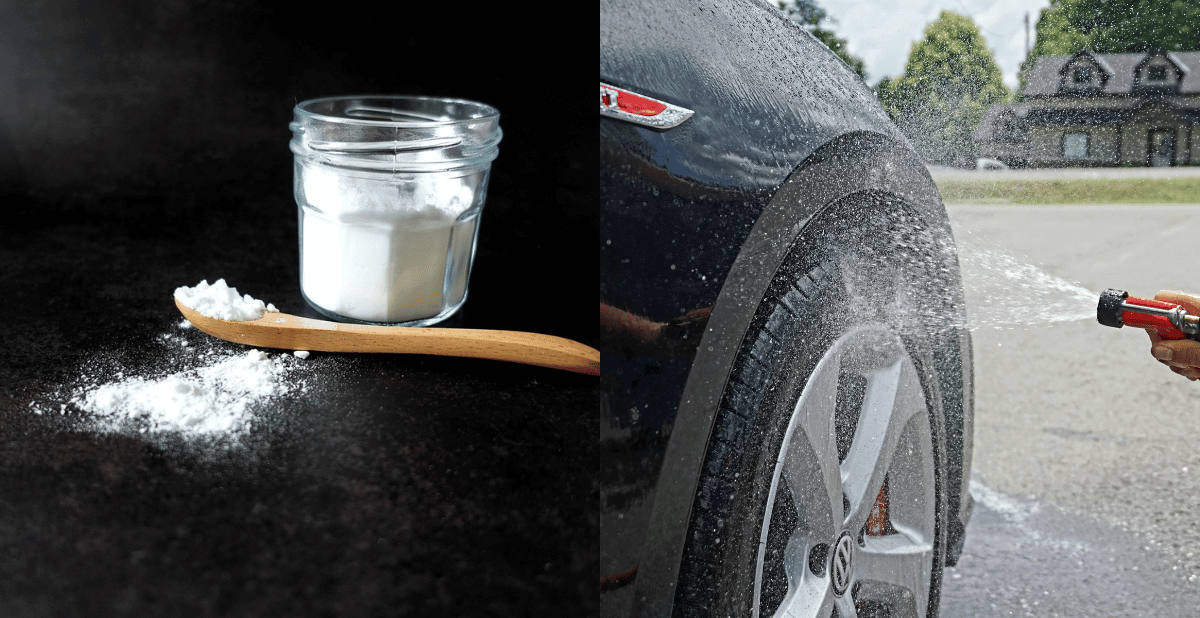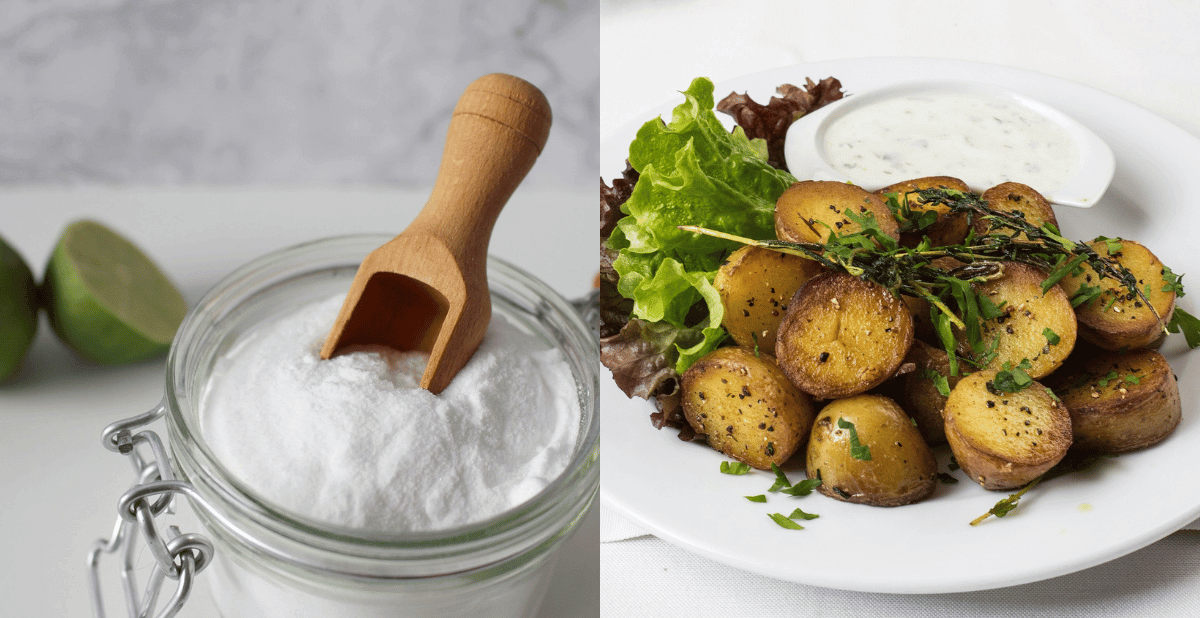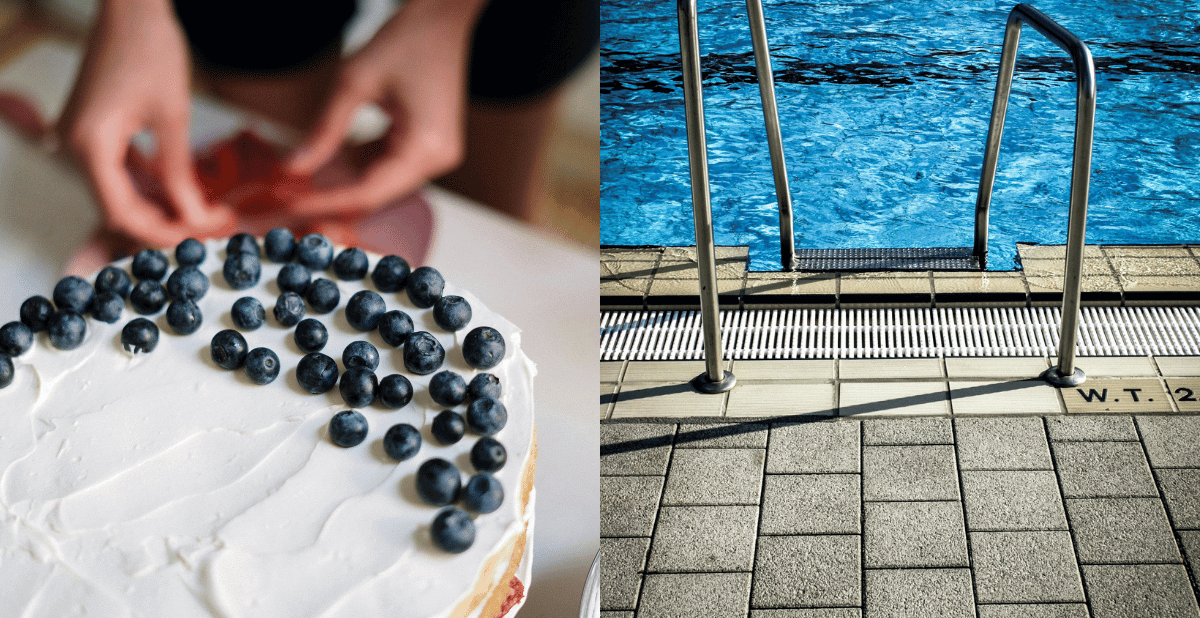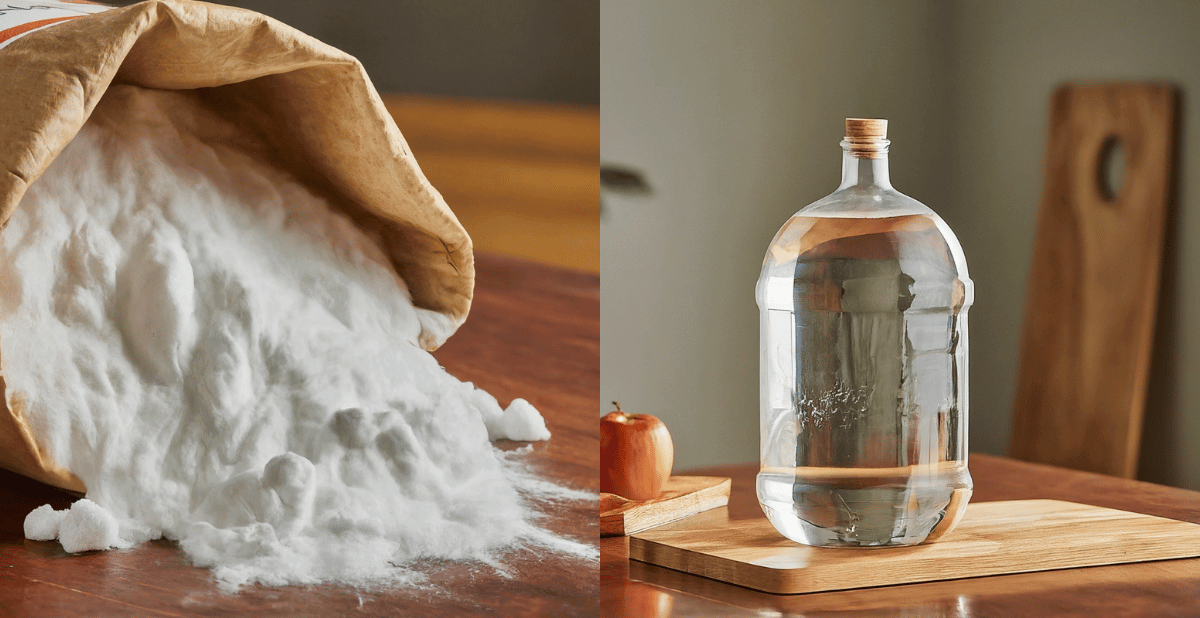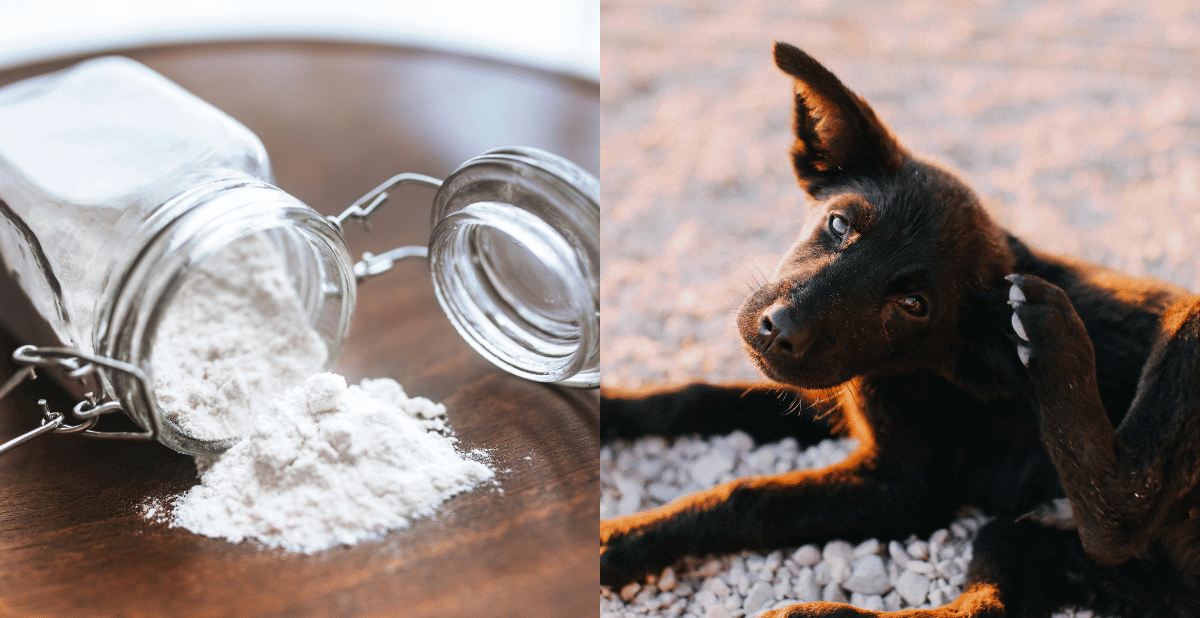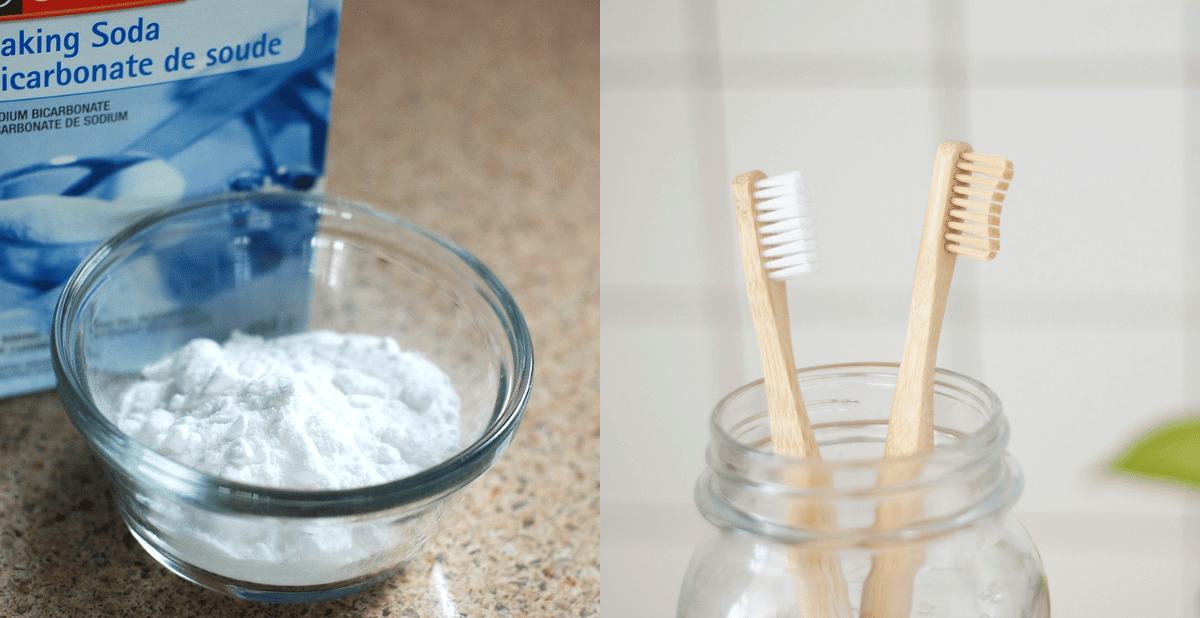Baking soda, or sodium bicarbonate, is a versatile household item known for its myriad uses, from baking to cleaning. But does baking soda neutralize salt?
The answer lies in the chemistry of these substances.
Sodium bicarbonate is a mild base, while table salt, or sodium chloride, is a neutral compound.
When baking soda comes into contact with salt, it doesn't neutralize it in the traditional sense but can help lessen some of its effects.
For instance, when dealing with road salt, which often contains magnesium and calcium chlorides, baking soda can help neutralize the acidic components.
This is particularly useful for preventing rust on vehicles.
Using a pressure washer with a soap nozzle, you can create a cleaning mixture that includes baking soda to help de-salt your car's exterior surface.
This method is especially effective for cleaning the undercarriage, wheel wells, and rocker panels, where salt tends to accumulate.
Key Takeaways:
- Baking soda can somewhat neutralize salt, but its effectiveness varies depending on the type of salt and the application method.
- Using baking soda to neutralize road salt on vehicles can help prevent rust and corrosion, especially when combined with proper washing techniques.
- Understanding the chemical interactions between baking soda and salt is crucial for effective application and maintenance.
Practical Applications: Neutralizing Road Salt on Vehicles
Winter brings snow and ice, and with it, the use of road salt to keep streets safe.
However, road salt can wreak havoc on vehicles, leading to rust and corrosion.
Using baking soda to neutralize road salt can be a game-changer.
A common practice is to mix baking soda with water and use a pressure washer to apply the solution to the car.
This helps to neutralize the salt and prevent rust formation.
For best results, start with an undercarriage rinse using a gutter cleaning wand or undercarriage brooms to remove loose salt and debris.
Follow this with a baking soda solution applied through a pressure washer.
Ensure you use soap nozzles to create a foamy mixture that can penetrate all the undersides of the vehicle.
After rinsing with fresh water, consider applying an oil spray or fluid film to further protect against rust.
The Role of pH in Neutralizing Salt
The pH scale measures how acidic or basic a substance is, with 7 being neutral.
Baking soda has a pH of around 8.3, making it slightly basic.
This property allows it to neutralize mild acids, which is why it's effective against the acidic components of road salt.
When using baking soda to neutralize salt, it's essential to understand the pH levels involved to ensure effective results.
For example, road salt often contains calcium chlorides, which can be quite acidic.
Applying a baking soda solution can raise the pH level, making the environment less conducive to rust and corrosion.
This is particularly important for farm equipment and other metal machinery exposed to salt.
Regular maintenance using baking soda can help keep these items in good shape, reducing downtime and extending their lifespan.
Effective Techniques for Using Baking Soda
When it comes to using baking soda to neutralize salt, technique matters.
Start by performing an initial wash with a pressure washer to remove loose salt and grime.
Next, prepare a baking soda solution by mixing sodium bicarbonate with water.
Apply the solution evenly across the vehicle or equipment using a spray wand or soap nozzle.
Consider using a stronger version of the solution or combining it with mild acids like oxalic acid for stubborn salt deposits.
You can find oxalic acid at your local pressure washer store or automotive wash supply shop.
After applying the baking soda solution, rinse thoroughly with fresh water to remove any residue.
This process helps to neutralize the salt and prevent the rusting process.
The Science Behind Baking Soda and Salt Neutralization
When we talk about the interaction between baking soda and salt, it's like a dance of chemistry.
Sodium bicarbonate, commonly known as baking soda, is a base, while salt, particularly sodium chloride, is neutral.
The question "Does baking soda neutralize salt?" often arises, especially when dealing with road salt on vehicles.
The neutralization process involves a reaction in which the baking soda can help mitigate the corrosive effects of salt, but it doesn't entirely neutralize it.
Instead, it helps to balance the pH levels, reducing the salt's ability to cause damage.
For instance, when road salt, which often contains magnesium and calcium chlorides, comes into contact with your car's undercarriage, it can lead to rust formation.
Using baking soda in your cleaning mixture can help to de-salt the affected areas.
A practical approach is to mix baking soda with water and apply it using a pressure washer.
This method helps to wash away the salt and reduce the risk of corrosion.
Still, following up with a thorough rinse using fresh water is essential to ensure all residues are removed.
Advanced Techniques for Salt Removal on Vehicles
Advanced techniques can make a significant difference in maintaining your vehicle's exterior surface, especially during winter months.
One effective method is using a power washer equipped with a gutter cleaning wand.
This tool allows you to reach all the undersides of your vehicle, including the wheel wells and rocker panels, where salt spray tends to accumulate.
Combining baking soda with a mild acid like oxalic acid can create a potent cleaning mixture that tackles even the toughest salt deposits.
Another technique involves the use of oil spray after the initial washes.
Products like Fluid Film can be applied to the undercarriage to create a protective barrier against salt and moisture.
This step is crucial in preventing the rusting process, especially in areas prone to heavy salt use.
Regular maintenance, such as using a car wash with an undercarriage rinse feature, can help keep your vehicle in good shape.
For those who prefer DIY solutions, a forum community dedicated to automotive care can provide valuable tips and product recommendations, ensuring your vehicle remains free from the ill effects of salt exposure.
Case Study: Neutralizing Salt on Farm Equipment
Farm equipment is particularly susceptible to salt damage, especially during the winter months when roads are treated with salt.
A farmer in the Midwest shared his experience on a forum community dedicated to farm equipment maintenance.
He discovered that using a baking soda solution helped to neutralize the salt and prevent rust on his machinery.
He started by using a power washer to remove loose salt and dirt.
Then, he applied a baking soda solution using a spray wand, ensuring all the undersides and hard-to-reach areas were covered.
After rinsing with fresh water, he noticed a significant reduction in rust formation.
This simple yet effective technique saved him time and money on repairs, keeping his equipment in good shape throughout the winter.
Additional Tips for Maintaining Vehicles and Equipment
In addition to using baking soda, there are other steps you can take to protect your vehicles and equipment from salt damage.
Regular washes, especially after exposure to salt, are crucial.
Use a pressure washer with appropriate nozzles to ensure thorough cleaning.
Consider investing in a Hotsy salt lick or similar product designed to remove salt effectively.
Apply an oil spray or fluid film to metal surfaces for added protection.
This creates a barrier that prevents salt from coming into direct contact with the metal, reducing the risk of rust.
Additionally, using a sand mixture spread on roads can help reduce the amount of salt needed, minimizing exposure to your vehicles and equipment.
FAQs
1. Can baking soda neutralize all types of salt?
Baking soda is most effective at neutralizing acidic components in road salt, such as magnesium and calcium chlorides.
It may not be as effective on neutral salts like table salt.
2. How often should I use baking soda to neutralize salt on my vehicle?
It's advisable to use a baking soda solution after each exposure to road salt, especially during the winter months.
Regular maintenance can help prevent rust and corrosion.
3. Can I use baking soda on other metal machinery besides vehicles?
Yes, baking soda can be used to neutralize salt on various metal machinery, including farm equipment and other outdoor tools.
Regular application can help extend the lifespan of these items by preventing rust and corrosion.
Until Next Time...
In conclusion, baking soda can be an effective tool for neutralizing salt, particularly road salt, which can cause rust and corrosion on vehicles and equipment.
By understanding the chemical interactions and using proper techniques, you can mitigate the damaging effects of salt.
Regular maintenance, including washing with a baking soda solution and applying protective sprays, can help keep your vehicles and equipment in good shape.
Taking these proactive steps will ensure longevity and optimal performance, saving you time and money in the long run.
Hope you found our post helpful!
MommaPuff



